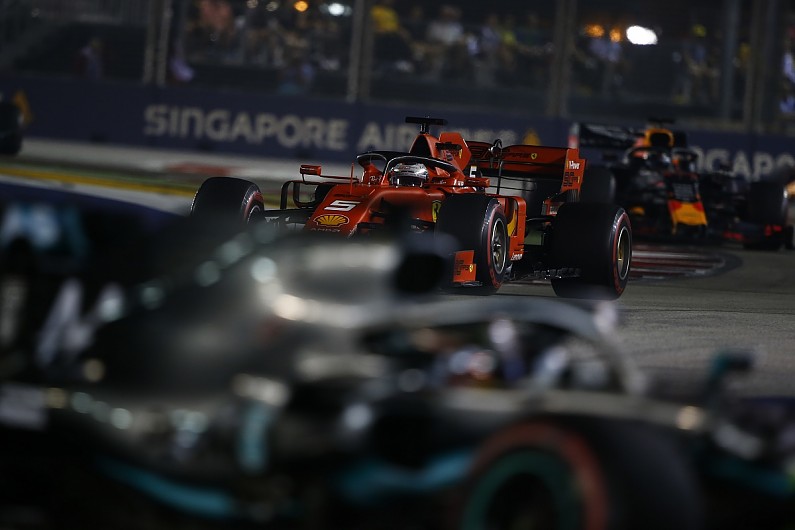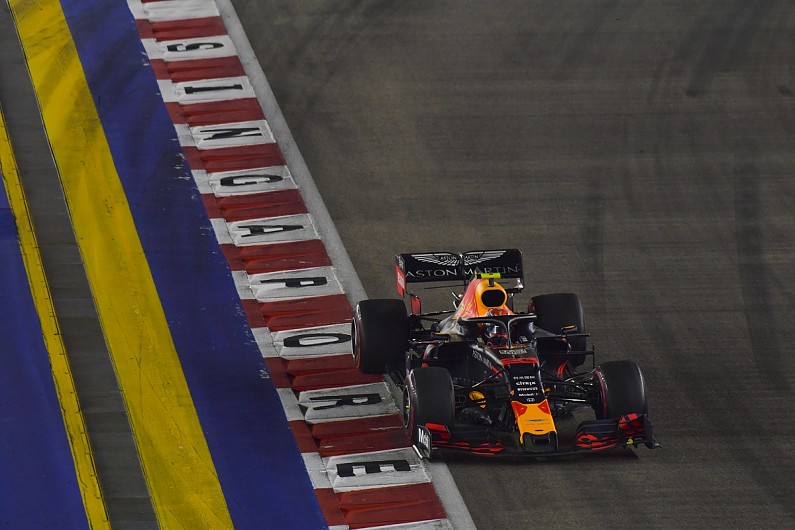Singapore GP organisers says they are in “an open dialogue” with Formula 1’s management amid suggestions that the event’s place on the 2020 calendar is under threat.
As reported this week F1 is currently working to a calendar with the Singapore race missing, with the postponed race in Azerbaijan moved to its original September 20 date.
However there has been no official announcement about a cancellation either from the promoter or from F1.
As a street venue Singapore is less flexible than traditional tracks, and work on building the circuit would typically have to start in late June in order to make the currently scheduled date.
The race could in theory be put back by one to three weeks to fill slots currently taken by Russia, China or Japan should they fall by the wayside, but after that F1 is committed to the Americas leg.
However a new date is unlikely, and team sources believe that a race in Singapore will not happen this year.
Race organisers say discussions are continuing, but made it clear that government regulations and the lead time to build-up the venue were the key.

“The Formula 1 calendar for the 2020 season is currently being finalised and Singapore GP has been maintaining an open dialogue with Formula 1, the Singapore Government, and our stakeholders during this time, to assess different possibilities,” an event spokesperson told Autosport.
“Singapore GP is also working closely with the Singapore Tourism Board and various government agencies on the circuit setup timeline.
“As the street circuit requires considerable temporary infrastructure, sufficient lead time to complete the construction of the various components must be factored in.
“Works typically require three months to complete, and this will be predicated on whether such activities are permitted under the prevailing government regulations.
“We will continue to keep a close watch on developments. Our utmost priority remains the well-being and safety of our fans, staff, volunteers, and all Singaporeans.”
Singapore is currently easing its coronavirus-enforced restrictions among its citizens, although thousands of migrant workers remain in lockdown due to a spike in cases among them – owing to cramped living conditions combined with a lack of availability of tests.
